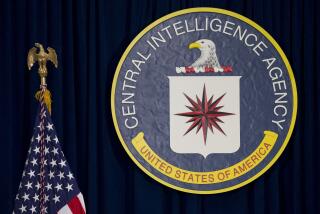Hands Off the Yugoslav Election
- Share via
Yugoslav President Slobodan Milosevic is facing a real challenger in the Sept. 24 general election. As he has shown so many times before, and is proving again in a preelection crackdown on opposition, he is most dangerous when cornered. For the United States and its NATO allies, the ouster of Milosevic--indicted as a war criminal--is essential to stability in the Balkans. But their best course is to stay far distant from these elections.
Earlier this year, Milosevic rewrote the constitution to let himself rule for at least eight more years. He also cut the pro-Western Montenegro--which together with Serbia forms what’s left of Yugoslavia--out of power in Belgrade. To make sure he does not lose the election, he has barred voting monitors from Western countries considered hostile to his rule. State-owned media were prohibited from carrying political material for the opposition candidates.
Harassment of rival candidates and their supporters is worsening. Over the weekend, six student activists belonging to the popular anti-government Otpor (Resistance) movement were arrested by police and beaten for putting up anti-Milosevic posters. Ivan Stambolic, a onetime Communist official who openly defied Milosevic, disappeared late last month and is believed to be under arrest.
Still, many Serbs and outsiders believe Milosevic will have to steal the election to come out on top. According to polls, he is running 10 to 20 points behind his main rival, Vojislav Kostunica, a relatively obscure constitutional lawyer. Like Milosevic, Kostunica is a Serb nationalist. He is a frequent critic of NATO and the United States. He does not recognize the international war crimes tribunal that indicted Milosevic and says that if elected he will not hand Milosevic over to justice. But, unlike Milosevic, who has used nationalism to further his own interests, Kostunica seems sincere in his promises to help his fellow Serbs. He is a believer in democracy and knows that Serbia must cooperate with the rest of Europe to come out of its economic misery.
Yugoslavia is approaching a critical period. Most Serbs believe that Milosevic can win only through fraud and would not accept voter rejection peacefully. In 1996, citizens staged huge demonstrations for months when Milosevic refused to accept defeat in many local elections. This is a man who will do anything to hold on to power.
Washington and its allies rightly see a Milosevic defeat as a key element of Yugoslavia’s return to civil society. But overt support for the opposition would only inflame nationalist sentiment. The best the West can do is sit back and let the Serbs decide.
More to Read
Sign up for Essential California
The most important California stories and recommendations in your inbox every morning.
You may occasionally receive promotional content from the Los Angeles Times.







